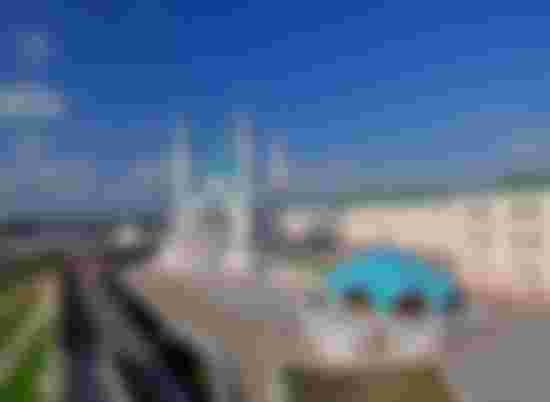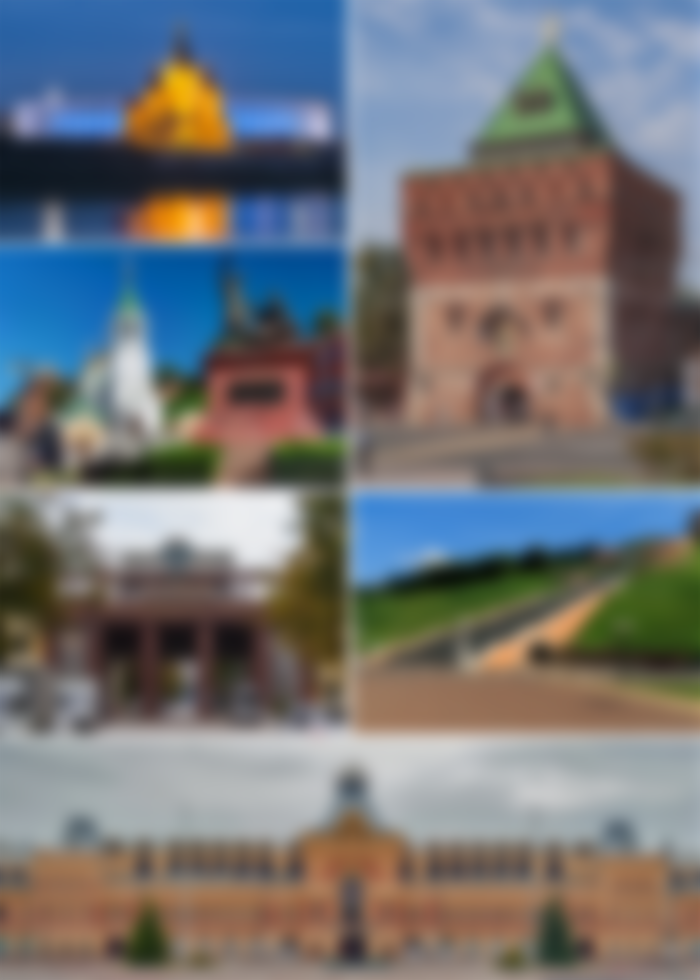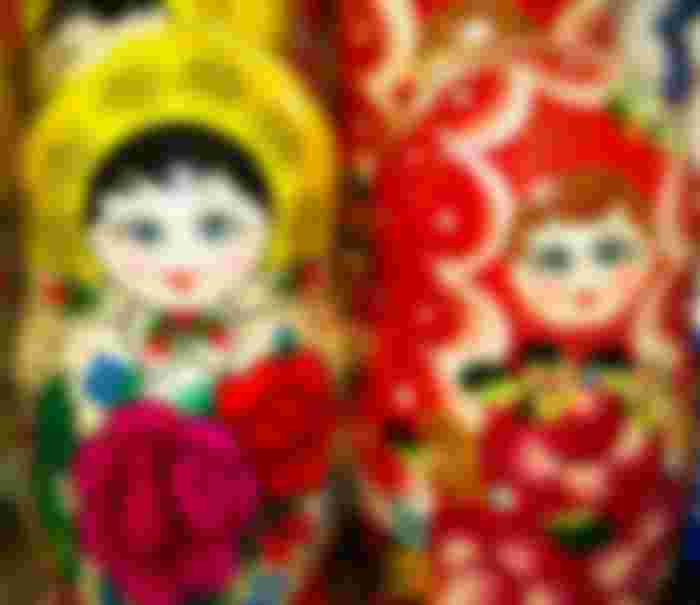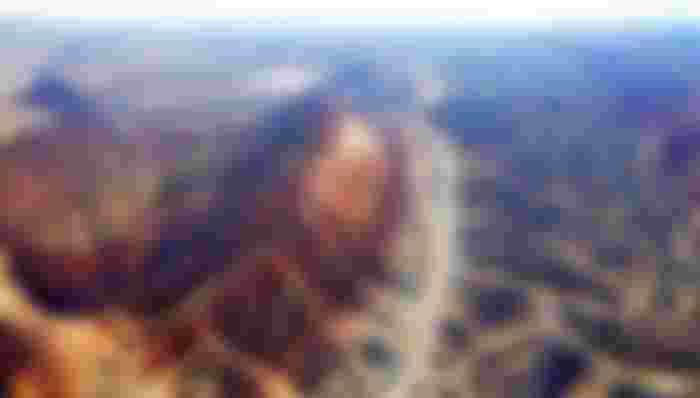The journey from Moscow to Vladivostok, over 4,000 bridges, 3,000 tunnels and 9,300 kilometers, takes 7 days and 7 nights.
Railways are a fast and cheap way to travel through Russia, over 100,000 kilometers of railways stretch through it like chewing gum, and for a trip from Moscow to Vladivostok, a ticket with a sleeping car costs around 100 euros.
For those with a deeper pocket, the tourist route "Golden Eagle" crosses the same route once a month.

Orao is a 5 * hotel on wheels.
The wagons are divided into luxury apartments, there are also wagons with restaurants, bars, boutiques, libraries, gyms, open wagons with terraces ...
And in order for the atmosphere to be complete, the composition with 50 wagons is pulled by steam locomotives P-36.
It can hardly be compared to the rocking of a wagon while you watch the Siberian wilderness from the warm jacuzzi through the window at -40⁰ and a personal butler pours champagne into your glass.
However, this kind of pleasure costs 15,000 euros.

People will regret the expensive ticket, but this one of 100 euros is exactly the way you can get to know real Russia, while at the tenth kilometer they push a roasted chicken drumstick into your mouth from the next compartment, someone has already poured 1 dl of vodka and said a standard toast "for us ", and at the bottom of the car, an uncle with a medal on his chest has already started the story of the siege of Leningrad.

As the train tirelessly swallows the distance, landscapes line up, similar yet so different.
It is a large country, it occupies such a large territory that it simply cannot be the country of one nation, and there are about 200 of them in Russia, certainly 83% of Russians.

More than 100 languages are spoken, the second most popular language in Russia is Tatar, but Russians do not understand it because it resembles Turkish.
In all schools, the Russian language is taught, which is pronounced the same throughout Russia, ie. there are no accents and it is not possible to conclude from the way of speech where who is from.
Eleven centuries before this train journey, representatives of the Judaic, Islamic and Christian faiths came to Russia.

Prince Vladimir was on the verge of accepting Islam because he was fascinated by stories about their paradise, paradise.
However, the prince understands that this religion has one very serious flaw, and that is the prohibition of alcohol according to the Koran.
Russia then becomes a Christian country and the saying "drink like a Russian."
Today's vodka, for which the Russians are famous, began to be produced only in the 18th century, and until then, honeydew was drunk, a drink similar to beer with honey.

Vodka began to be made in the era of Peter I Romanov, who was a great lover of alcohol and women and had the saying "one should drink alcohol every day and never go to bed sober."
In 1714, he also made a medal for drunkenness weighing 7 kilograms.
After 550 kilometers with a spark of wheels, the train stops in Nizhny Novgorod.
The grandmothers at the station sell home-made specialties at very affordable prices, so they all went out to replenish their supplies.

The food is top quality, which is not surprising because there is a saying in Russia that says "the path to a man's heart leads through the stomach", so Russian women are perhaps the best housewives in the world.
The most popular dish is borscht, beef and vegetable soup, pelmeni, Russian salad called Olivia in Russia, fish ...
In Tatarstan, a lot of horses are eaten, and the famous Tatar steak was created there, when the Tatars put beef steak under the saddle and rode on it for days.
And right here in Tatarstan, which is a Muslim Republic, there is another Kremlin, many know about the one in Moscow, but the Kremlin also exists in Kazan, where a mosque and an Orthodox church stand next to each other within the walls of the Kremlin.

After 1,800 kilometers, the train leaves for the Urals, it is time to leave Europe and enter Asia.
The train to Ekaterinburg arrives in the middle of the night, since the communist times, the practice has remained that the train arrives in all major cities at night.
Behind the Urals, everything is different.

In Moscow, children stop going to school when the temperature drops below -26⁰, while children in Siberia go to school until -53⁰.
In Yakutia this year, the summer-winter temperature varied by 100 °.
As usual, in the dead of night and after 5,200 kilometers, the train arrives in Irkutsk, where passengers will be greeted by the deepest lake in the world, twice the size of Slovenia, Lake Baikal, whose fish the locals sell at the station at -38 °.

At 8,500 kilometers from Moscow, the train crosses the Amur River and arrives in Khabarovsk.
Cute Russian women enter the train and share pancakes.
They explain to the confused tourists that in Russia, a week before the beginning of the Great Easter Lent, the celebration of spring, the holiday of Maslenitsa, is celebrated.
Then pancakes in the shape of the sun and other butter dishes are eaten for 7 days.

Those in this part of Russia also celebrate the New Year 9 hours before Moscow, and their custom is to eat mandarins and drink champagne at midnight.
After 7 days and 7 nights, and 9,300 kilometers covered, the train arrives in Vladivostok with a delay of 25 minutes.
Russia, a country with a population of almost 150 million, a country that is 30 times larger than France, which is larger than the entire planet Pluto, a country in which the time varies from 10 hours in the west to the enclave of Kaliningrad to Kamchatka in the east.











Rusija, moja jos uvek neostvarena zelja... Rece mi muz pre mnogo godina "za medeni mesec vodim te u Rusiju" i naravno nit je bilo Rusije, niti medenog meseca, al aj oprosticu mu :D Hvala ti za ovaj divan clanak, sve sto je vezano za Rusiju i tek kako volim da citam...